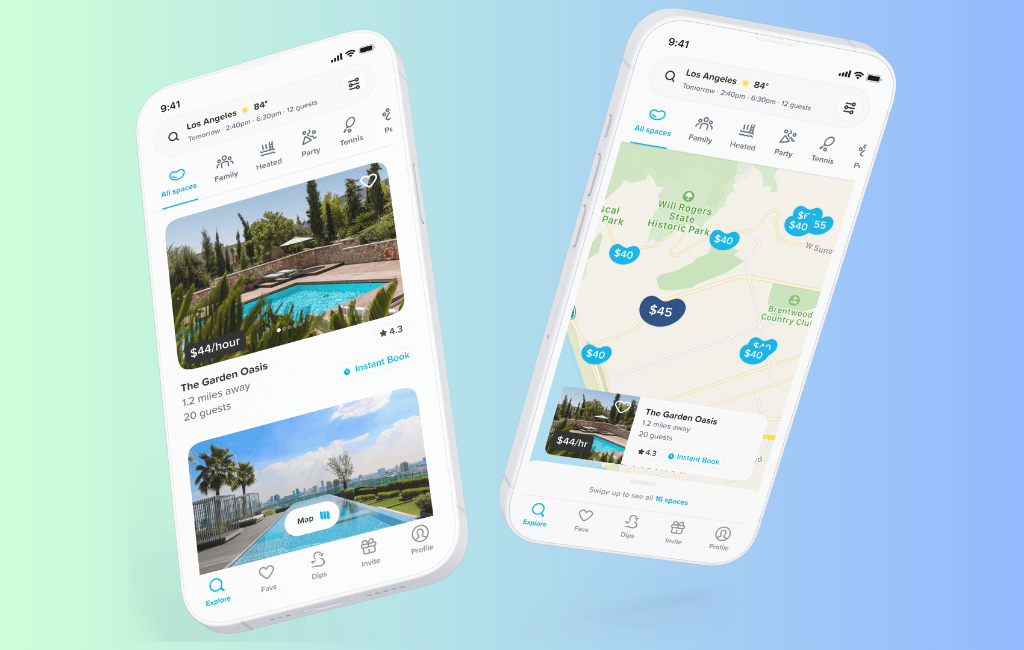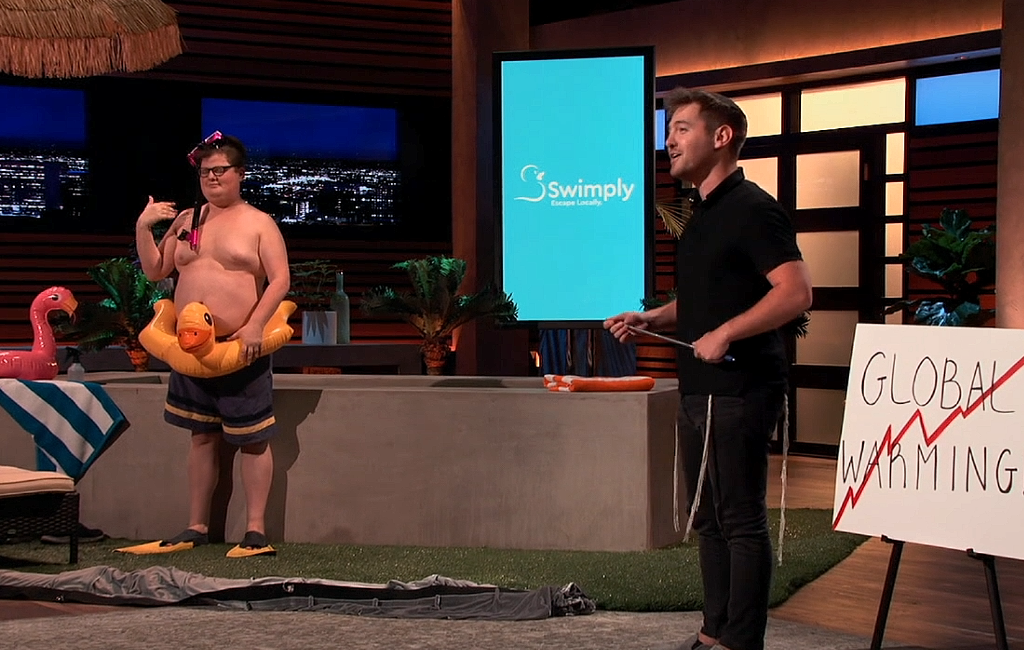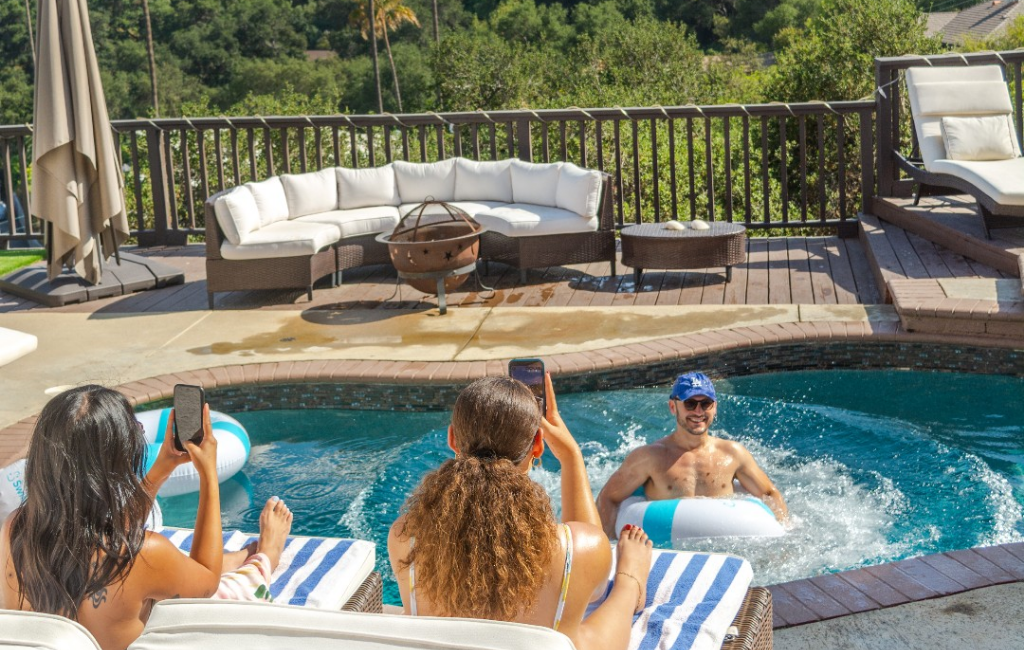Swimply – Pool Rental App

NO DEAL
EPISODE SUMMARY
🕓 Air Date: March 13, 2020
Asking For:
$300,000 for 5%
Investor:
No Deal
Deal:
No Deal
PRODUCT SUMMARY
Swimply is an online marketplace that allows people to book private pools by the hour, connecting pool owners with those seeking a poolside experience.
WATCH HERE
IN A RUSH?
Click these to jump to the section you want to read.
Background Story
Bunim Laskin, a 22-year-old entrepreneur from Lakewood, New Jersey, came up with the idea for Swimply when his neighbor’s pool was frequently unused. After striking a deal to contribute to the pool’s maintenance expenses, Laskin saw an opportunity to expand this arrangement to a larger audience. Using his bar mitzvah money, he launched a small website and personally approached 80 pool owners, eventually securing four pools for the platform’s beta launch.

Despite initial challenges, Laskin raised $960,000, primarily from a pool-maintenance partnership, at a $6 million valuation. The concept grew rapidly, with Swimply facilitating 900 hours of reservations in the initial phase. However, technical issues led to a pause, and Laskin spent the next summer raising additional funds. The business model connects pool owners and users, allowing hosts to set prices and limits while Swimply takes a 15% commission from hosts and charges swimmers a 10% service fee.
The Product
Swimply functions as an Airbnb for pools, enabling users to find and book private pools for an hourly fee. Hosts can set their prices and limits, deciding the number of guests allowed and additional fees for extra visitors.
Users can access the platform through an app or website, with reservations and payments managed on the platform. Swimply has introduced Swimply Chat to facilitate communication between hosts and guests.
The revenue model involves a double-sided approach. Swimply takes a 15% commission from hosts and charges an additional 10% service fee to swimmers, making it a 25% total fee.
While Laskin mentioned technical issues affecting the platform’s performance, he highlighted plans for improvements, emphasizing Swimply’s potential for growth.

How It Went
The company’s position before Shark Tank
Swimply claims to have booked 1,600 hours year-to-date, translating to $215,000 in gross marketplace revenue. Laskin stated that the net revenue is around 20% of the gross revenue, indicating approximately $42,000 in net revenue. The company raised $1 million in total, with $960,000 coming from a pool-maintenance partnership at a $6 million valuation.

Laskin revealed that Swimply capitalized on only $150,000 of the $675,000 worth of bookings that went through the platform, citing technical issues as the primary hindrance. Despite challenges, Swimply projects breaking even next year and anticipates $15 million in profits the following year, with a long-term goal of reaching $289 million in marketplace revenue in the U.S. alone by 2022.
The Negotiations:
Laskin entered the Tank seeking $300,000 for a 5% equity stake, valuing Swimply at $6 million. The Sharks expressed concerns about the high valuation given the current revenue and profitability figures. Mark Cuban, expressing interest in the concept, questioned Laskin’s pricing strategy and the scalability of the business. Kevin O’Leary was the first to opt out, followed by Lori Greiner, Robert Herjavec, and Barbara Corcoran. The Sharks cited concerns about the valuation, scalability, and technical issues faced by Swimply.

Despite Laskin’s passionate pitch and his assertion that the company was on the verge of substantial growth, none of the Sharks were willing to invest at the proposed valuation. Mark Cuban, the last remaining Shark, ultimately decided to pass on the opportunity, leaving Laskin without a deal. The Sharks collectively raised questions about the ambitious projections, technical challenges, and overall feasibility of Swimply’s business model.







